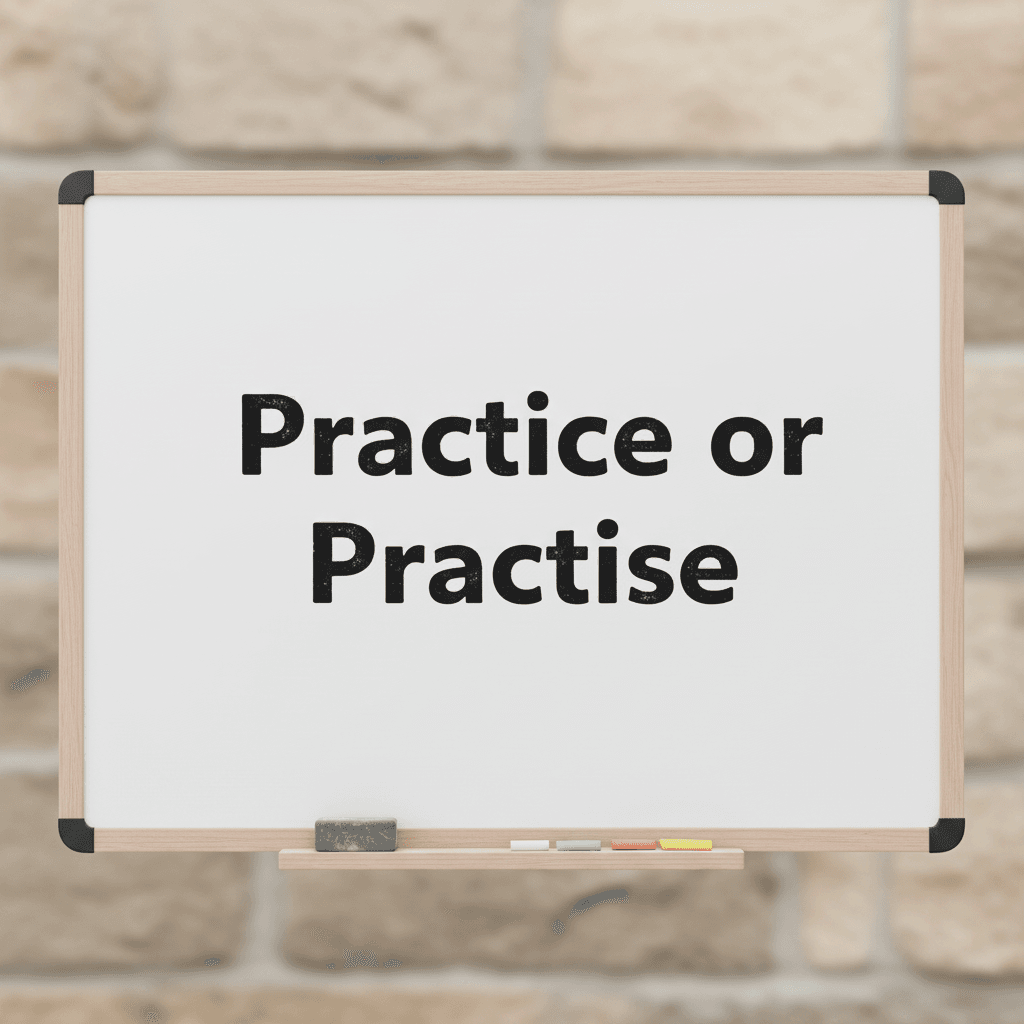Practice vs. Practise: What’s the Difference?
 These two forms confuse many learners, but the rule is simple:
These two forms confuse many learners, but the rule is simple:
Practice → ✔ noun (UK/US) + verb (US) Practise → ✔ verb only (UK)
If you write American English, you never use “practise.”
If you write British English, you use both depending on noun vs. verb.
1. Practice (Noun in UK/US; Verb in US)
Meaning
As a noun, “practice” means:
- training
- repetition
- a professional business (doctor’s practice)
- routine or habit
As a verb in American English, “to practice” means:
- to train
- to improve skills
- to repeat for learning
Examples (10 total — mix of noun & US verb)
- I need more practice before the exam.
- The doctor opened a new medical practice.
- Good writing comes with practice.
- He practices piano every day.
- They practiced for the concert all week.
- Her practice focuses on family law.
- Daily practice will help you improve.
- We practiced the speech together.
- The team needs extra practice today.
- He practices mindfulness every morning.
🧠 Tip:
If you're writing American English → always use practice.
2. Practise (Verb Only in UK English)
Meaning
In British English, “practise” is the verb form of “practice.”
Examples (10 total — UK verb)
- She practises singing every evening.
- He practised driving before the test.
- They practised their lines for the play.
- You need to practise more often.
- We practised speaking English together.
- He practises law in London.
- She practised her presentation twice.
- They practised the dance routine.
- I practised with the team yesterday.
- He practises meditation daily.
🧠 Tip:
British English → noun = practice, verb = practise.
3. Quick Comparison Table
| Form | Region | Part of Speech | Example |
|---|---|---|---|
| Practice | US/UK | noun (both) + verb (US) | I need more practice. / I practice daily. |
| Practise | UK | verb only | I practise every morning. |
4. How to Remember
👉 In British English:
- C = noun → practice
- S = verb → practise
👉 In American English:
- Practice does everything: noun + verb
Memory trick:
British has two forms; American has one.
5. Common Mistakes
❌ Using “practise” in American writing
✔ US English never uses “practise”
❌ Using “practice” as a verb in British exams
✔ UK verb = practise
❌ Thinking they mean different things
✔ Same meaning — different spelling rules
Writing More Naturally
Mixing British and American forms can make writing look inconsistent. For clearer, more natural text, an humanize AI text tool can automatically smooth spelling and tone based on your region.
FAQs
1. Is “practise” wrong in the U.S.?
Yes — it isn’t used in American English.
2. Do both forms mean the same thing?
Yes — only the spelling changes.
3. Is “practice” always a noun in British English?
Yes — practice (noun), practise (verb).
4. Which should I use on a resume?
If applying internationally, prefer practice, the more widely recognized spelling.
Practice: Choose the Correct Word
(Based on British English rules.)
- I need more __________ before the performance.
- She __________ piano every day.
- He opened a dental __________ in town.
- We __________ our lines yesterday.
- Good __________ leads to improvement.
Answers
- practice
- practises
- practice
- practised
- practice
